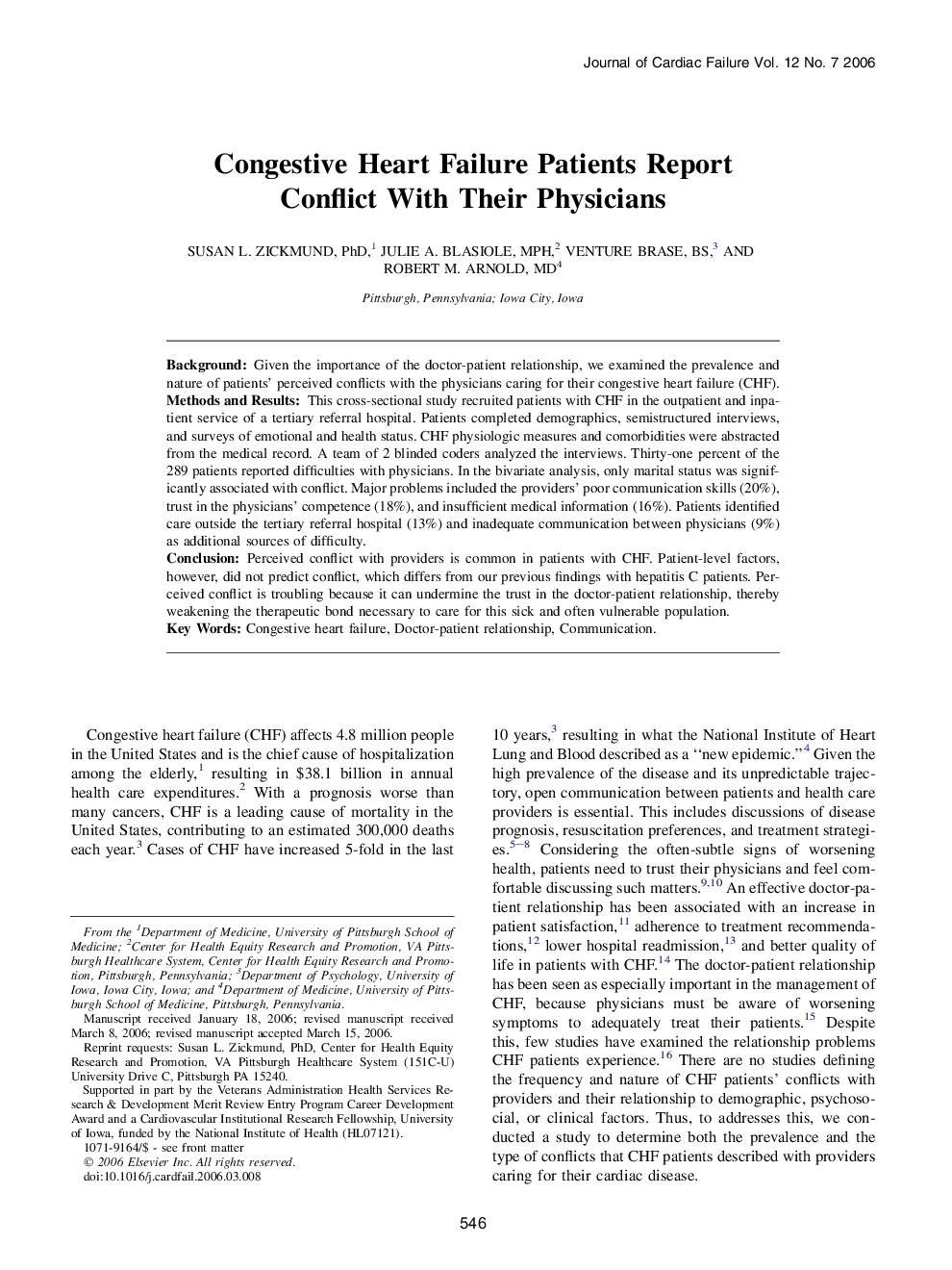| Article ID | Journal | Published Year | Pages | File Type |
|---|---|---|---|---|
| 2962619 | Journal of Cardiac Failure | 2006 | 8 Pages |
BackgroundGiven the importance of the doctor-patient relationship, we examined the prevalence and nature of patients' perceived conflicts with the physicians caring for their congestive heart failure (CHF).Methods and ResultsThis cross-sectional study recruited patients with CHF in the outpatient and inpatient service of a tertiary referral hospital. Patients completed demographics, semistructured interviews, and surveys of emotional and health status. CHF physiologic measures and comorbidities were abstracted from the medical record. A team of 2 blinded coders analyzed the interviews. Thirty-one percent of the 289 patients reported difficulties with physicians. In the bivariate analysis, only marital status was significantly associated with conflict. Major problems included the providers' poor communication skills (20%), trust in the physicians' competence (18%), and insufficient medical information (16%). Patients identified care outside the tertiary referral hospital (13%) and inadequate communication between physicians (9%) as additional sources of difficulty.ConclusionPerceived conflict with providers is common in patients with CHF. Patient-level factors, however, did not predict conflict, which differs from our previous findings with hepatitis C patients. Perceived conflict is troubling because it can undermine the trust in the doctor-patient relationship, thereby weakening the therapeutic bond necessary to care for this sick and often vulnerable population.
